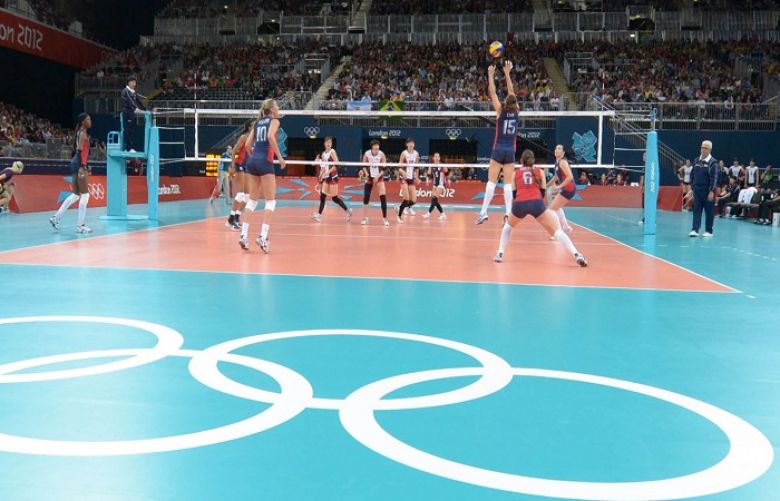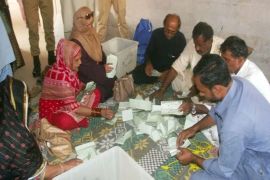Gerald Murphy served time in prison after being convicted of lewd and lascivious assault of a child. The state of Florida permanently revoked his teaching certificate for the crime.
Murphy was also a youth coach, a member of USA Taekwondo. The elite sports organization’s leadership eventually found out about his past. So did high-ranking officials at the U.S. Olympic Committee.
Yet even after USA Taekwondo banned Murphy in 2014, the governing body and the U.S. Olympic Committee essentially forgot about him. Nobody raised an alarm when his wife filed paperwork with the state to take over the gym he’d once owned. Nobody thought to check if Murphy was still coaching.
He was.
For four years it was as if Murphy’s ban never happened. A USA TODAY investigation found he continued to coach young athletes at the same gym, and that gym remains a member of USA Taekwondo.
“Do I coach at the school? Yeah, I am the teacher and owner,” Murphy told a USA TODAY reporter in August as he opened the gym for class in a strip mall just north of downtown Tallahassee.
He’s one of a half-dozen coaches banned for sexual misconduct who USA TODAY reporters found were still active in their sport. Three of them were working at events or facilities affiliated with the national sports governing bodies that are supposed to be enforcing the bans.
Scandals sparked by coaches who sexually abuse young athletes have rocked Olympic sports for more than a decade, most recently with the case of Larry Nassar. More than 350 women and girls accused the USA Gymnastics national team doctor of molesting them under the guise of medical treatment. He’s now serving an effective life sentence after pleading guilty last year to possession of child pornography and criminal sexual conduct.
In a damning review of what the U.S. Olympic Committee and USA Gymnastics knew about Nassar and when, investigators from the law firm Ropes & Gray said this week that the problem goes beyond individual predators. Structural flaws in the governance of both the Olympic committee and sports governing bodies have resulted in a hands-off, corporate-like approach that puts the priority on winning medals, not protecting athletes.
Former U.S. Olympic Committee CEO Scott Blackmun drew particularly harsh criticism in the Ropes & Gray report, issued Monday. Under his watch, the Olympic Committee vowed repeatedly to fix its child-protection system and, over the past eight years, made intermittent attempts to reform it.
Yet USA TODAY's investigation found that gaping holes remain.
USA TODAY winnowed hundreds of banned individuals to a smaller list of nearly five dozen based on the ability to determine the misconduct that led to their bans and any suggestion they might still be coaching. To identify those still involved in youth sports, reporters reviewed court records and social media posts, interviewed advocates and parents and visited gyms and other athletic facilities around the nation.
These programs range from those that train young athletes for the Olympics to those at the grassroots level.
If you find someone you think is still coaching, please email us at: This email address is being protected from spambots. You need JavaScript enabled to view it..
Reporters also examined how the USOC and its 49 sports governing bodies track coaches who have been banned from participation in the Olympic movement. (USA Skateboarding, which was recognized by the USOC in June as its 50th governing body, was not included in the survey.) There they found a historically hands-off approach by the USOC, which left the job of protecting children largely to the governing bodies, many of which lack funding, staff and expertise.
Sen. Richard Blumenthal, D-Conn., was not surprised to learn banned coaches remained active.
“One is too many,” said Blumenthal, ranking member of the Senate subcommittee that is investigating sexual abuse in the Olympic movement. “The six that you found probably are only the tip of the iceberg, judging by the laxity of enforcement and apprehension.”
At least 931 people have been sanctioned by a national governing body or by the national U.S. Center for SafeSport, a USA TODAY analysis of their publicly available lists and database found. Those sanctions often follow criminal cases or an investigation by the governing body or the center. The people on those lists are spread across every state and 36 sports. More than two-thirds are permanently forbidden to participate in the U.S. Olympic movement.
“It seems to me there’s still an issue of too much concern about the adult and not nearly enough concern about the safety of the children.” Marci Hamilton, CEO of CHILD USA
Yet no cohesive system warns parents when coaches have been banned. The USOC and its governing bodies rarely follow up to ensure that they are being kept away from young athletes.
As a result, coaches who violate their bans – and the facilities and organizations that hire them – face few repercussions.
Just 17 of 40 governing bodies that responded to a USA TODAY survey said they even have the power to take action against gyms and clubs that ignored the bans. (Nine of the governing bodies, including three of the largest – USA Volleyball, US Speedskating and U.S. Ski & Snowboard – did not respond to the survey.)
“What we’ve seen in more vigorous or effectual enforcement is close to zero,” Blumenthal said. “And it’s a major failure on the part of the USOC (that) ... puts athletes at risk every day.”
Lists of people barred from their sport form the backbone of the child protection system. But those lists have their own limitations.
A searchable database maintained by SafeSport, which now handles all sexual misconduct cases for the USOC and its governing bodies, includes only those banned or suspended since SafeSport opened in March 2017.
Finding coaches banned before that requires scouring the individual lists of the sports governing bodies. Only about half of the 40 governing bodies that responded to the USA TODAY survey maintain any sort of public list, however, and some of those simply duplicate what’s on SafeSport’s website. Three governing bodies – USA Climbing, USA Hockey and U.S. Soccer – have lists that they do not publish.
What’s included varies widely as well. Of the 931 cases, nearly 200 provide no detail about why the person was sanctioned.
Figure skating’s list includes Tonya Harding, who was banned in 1994 for her role in the physical assault of fellow skater Nancy Kerrigan. Weightlifting includes those banned for doping. SafeSport’s database leaves out location details nearly a third of the time.
“They should also be erring on the side of caution so if there is a reason to think that someone has come forward and there was abuse of any variety, that person should be suspended and not permitted in the sport,” said Marci Hamilton, chief executive officer of CHILD USA, a nonprofit think tank that works to prevent child abuse.
“It seems to me there’s still an issue of too much concern about the adult and not nearly enough concern about the safety of the children.”
Eric Steele, who became executive director of USA Roller Sports in January after two decades with the Boy Scouts, said the Olympic movement is far behind other organizations, hampered by a lack of coordination.
For sports, Steele said, “there’s probably at least 35 different membership databases with different software, and they all have different capabilities.”
Under pressure from Congress, which has held five hearings over the past eight months, the USOC in late May required for the first time that governing bodies share information on people they had banned. SafeSport is now working to add those banned for sexual misconduct before March 2017 to the center’s database. CEO Shellie Pfohl said the goal is to complete that in early 2019.
At one of the hearings, the then-acting CEO of the Olympic movement, Susanne Lyons, acknowledged that the USOC needed centralized information on banned individuals across the movement.
“It has not happened to date, and I regret that we did not exercise more of our authority to enforce that standard ... prior to this,” she said in May.
In a phone call after the release of the Ropes & Gray report, USA TODAY presented its findings to Lyons, who will become chairwoman of the USOC board Jan. 1.
Asked whether those findings undercut the USOC's assertions that it has taken meaningful action over the past eight years, Lyons said: "I think it’s going to take some time. ... We need to help the NGBs develop the right policies and procedures to enforce that all the way down to the grassroots level, because that is obviously a weakness in the system."







